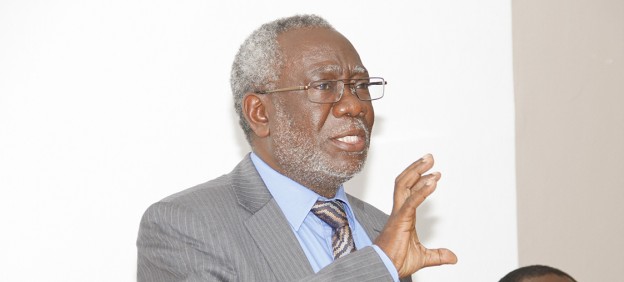By HOPE BWALYA –
THE latest labour force survey report indicates that about six million people out of 14.9 million in Zambia are employed.
Of the 5.86 million Zambians that are employed, only 16.1 per cent are in formal employment while 83.9 per cent are in informal employment.
 Labour and Social Security Minister Fackson Shamenda said during the launch of the report yesterday that the Government had, therefore, put in place measures to formalise the informal sector.
Labour and Social Security Minister Fackson Shamenda said during the launch of the report yesterday that the Government had, therefore, put in place measures to formalise the informal sector.
“The key findings of the 2014 labour force survey show that Zambia’s total employed population is estimated at 5.86 million of which 16.1 per cent are in the formal sector and 83.9 per cent in the informal sector. The overall unemployment rate is estimated at 7.4 per cent, while youth unemployment is estimated at 10.5 per cent,” Mr Shamenda said.
He said informal work was a challenge to the development of the country and hence the Government had put up measures aimed at formalising the sector.
Some of the measures are the formulation of the revised National Youth Policy and Plan of Action Programme, industrialisation, job creation strategy, and the national development plans.
Meanwhile, International Labour Organisation (ILO) director for Zambia, Malawi and Mozambique Alexio Musindo said decent work was essential for poverty reduction and ensuring sustainable development.
Mr Musindo said this in a speech read for him by chief technical adviser, Tapera Muzira.
“Planning, decision-making and labour statistics are important for the economy in Zambia where urgent and multi-stakeholder efforts are needed to deal with the rising challenges of unemployment and poverty reduction, particularly among women and youths,” he said.
Central Statistical Office director John Kalumbi said understanding of labour trends was critical to the design of effective policies for job creation.
Mr Kalumbi said there was need for increased efforts in putting in place measures and systems for continuous collection and dissemination of labour market indicators that were useful in the formulation of policies.






